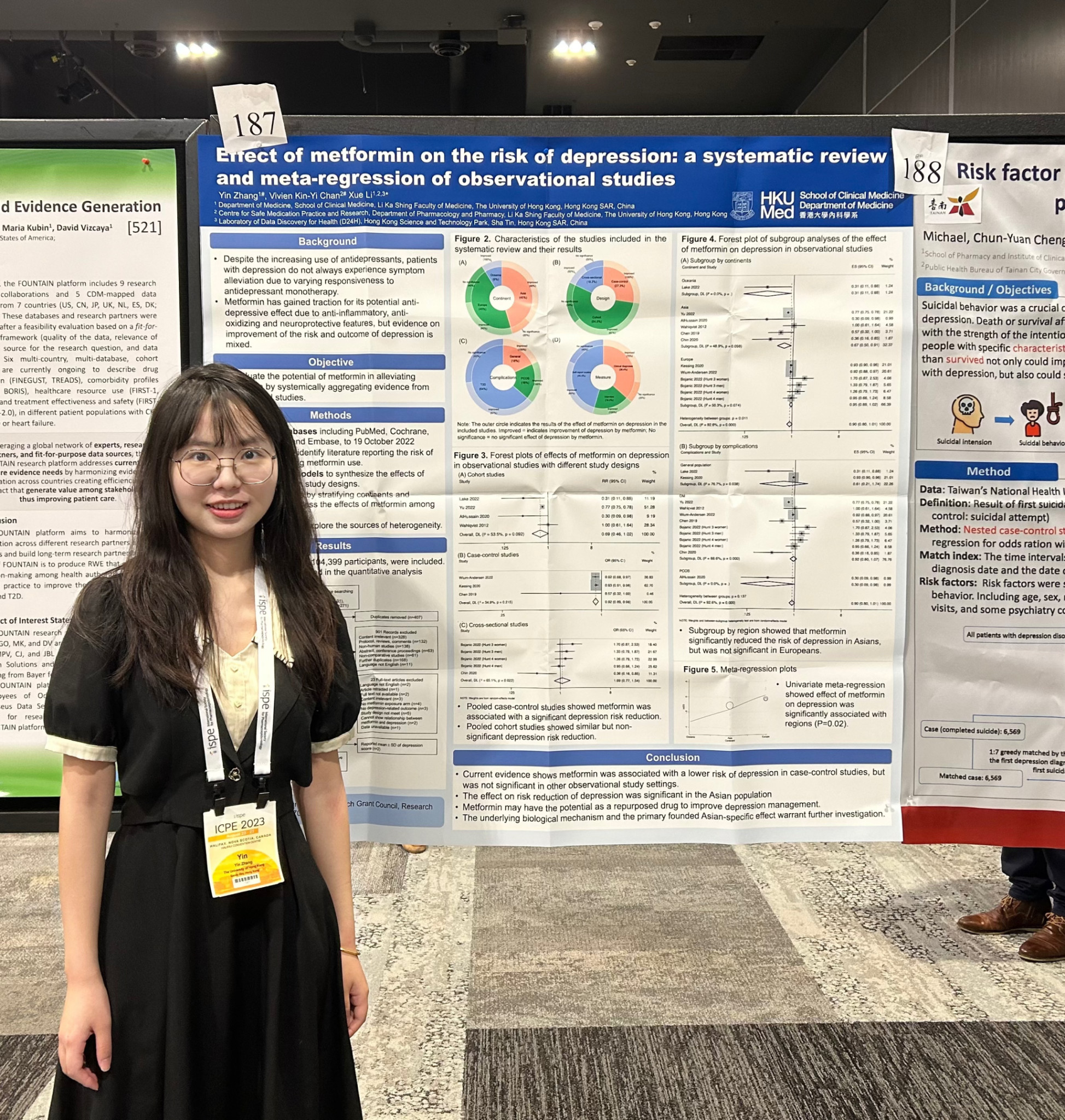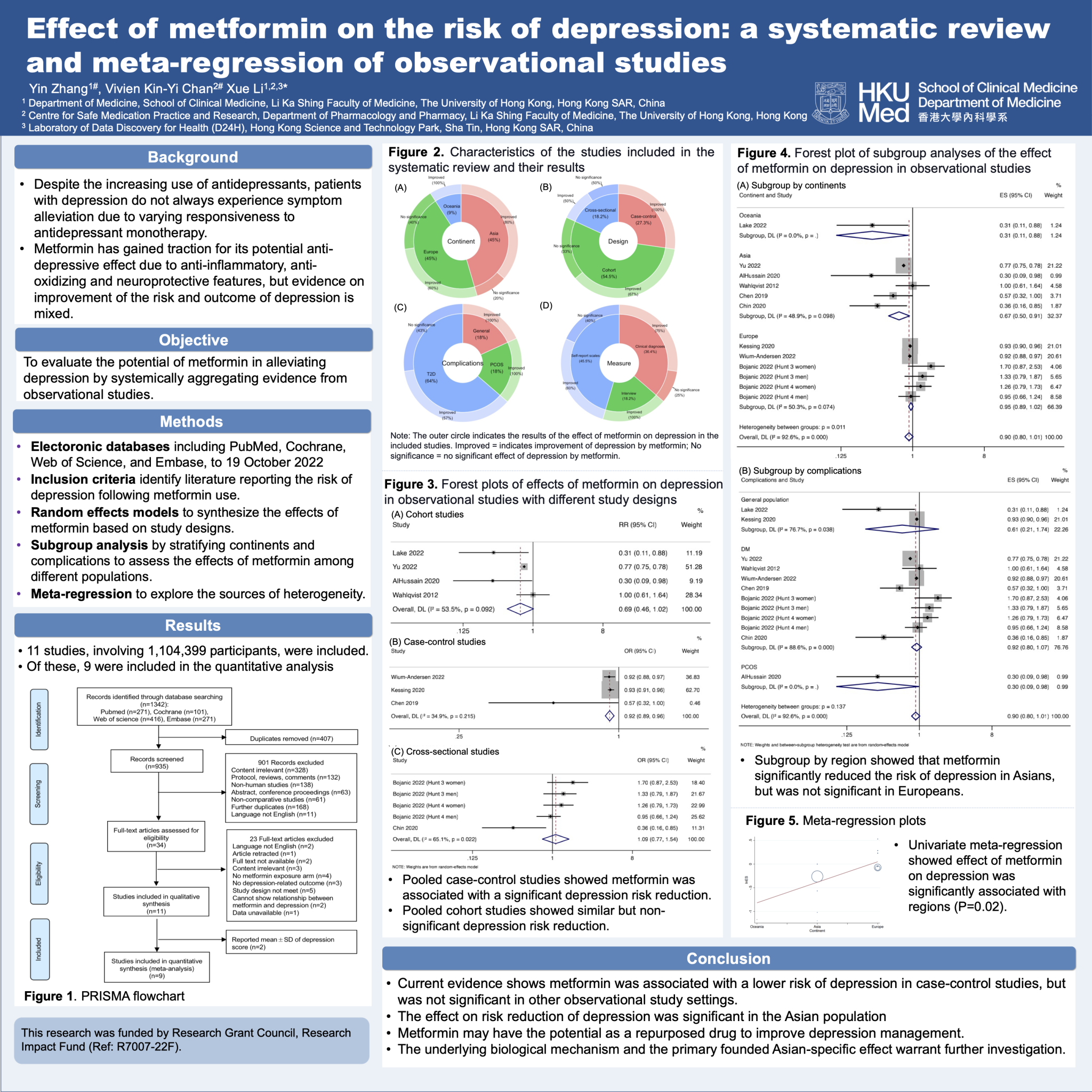
Yin Zhang participated in the 39th International Conference on Pharmacoepidemiology & Therapeutic Risk Management (ICPE 2023), held from August 23 to 27, 2023, at the Halifax Convention Centre, Halifax, Nova Scotia, Canada. She presented a poster titled “Effect of Metformin on the Risk of Depression: A Systematic Review and Meta-Regression of Observational Studies”, which explored the potential role of metformin as a repurposed agent in depression management.
Effect of Metformin on the Risk of Depression: A Systematic Review and Meta-Regression of Observational Studies
Background
Despite the increasing use of antidepressants, patients with depression do not always have their symptoms alleviated owing to varying responsiveness to antidepressant monotherapy. Metformin, a commonly used antidiabetic drug, has gained traction for its potential anti-depressive effect due to anti-inflammatory, anti-oxidizing and neuroprotective features, but evidence on whether it improves the risk and outcome of depression is mixed.
Objectives
We aimed to evaluate the potential of metformin in alleviating the risk and outcome of depression by systemically aggregating evidence from observational studies in real-world settings.
Methods
We systematically searched four databases including PubMed, Cochrane Library, Web of Science, and Embase, using designated search terms updated to 19 October 2022 to identify literature reporting the risk of depression following metformin use. Inclusion criteria were quantitative observational studies with metformin use as the exposure and depression as the outcome. All eligible studies underwent quality assessment before review. Random effects models (the inverse variance method) were used to synthesize the reported effects of metformin based on study designs with 95% confidence intervals (CI). Subgroup analysis was conducted by stratifying continents and complications to assess the effects of metformin among different populations. We also performed meta-regression to explore the sources of heterogeneity.
Results
A total of 11 studies published from 10 countries or regions, involving 1,104,399 participants, were included. Of which, nine were included in the quantitative analysis. In the pooled analysis of case-control studies (N=3), metformin was associated with a significant depression risk reduction (OR=0.92, 95%CI=0.89-0.96, p<0.01); pooled cohort studies (N=4) showed similar but non-significant depression risk reduction (RR=0.69, 95%CI=0.42-1.02, p=0.06). Subgroup analysis by region showed that metformin significantly reduced the risk of depression in Asians (pooled effect size=0.67, 95%CI=0.50-0.91, p=0.01), but not in Europeans. Univariate meta-regression indicated that the effect of metformin on depression was significantly associated with regions (p=0.02).
Conclusions
Current evidence showed metformin was significantly associated with the amelioration of depression in the case-control studies but not in other observational study settings. The mitigating effect on depression was significant in Asian populations. Metformin may have the potential to be repurposed to improve depression management, and the biological mechanism of ethics-specific effect warrants further investigation.

